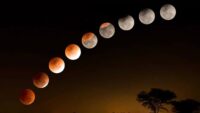In a dramatic diplomatic shift, the United Kingdom, Canada, and Australia formally recognised the State of Palestine on September 21, 2025, citing the worsening humanitarian crisis in Gaza and growing frustration with stalled peace efforts between Israelis and Palestinians. The move, coordinated among these three longtime allies, aims to breathe new life into the vision of a two-state solution.
The Leaders’ Message: Hope with Conditions
British Prime Minister Keir Starmer said the recognition is intended “to revive the hope of peace for the Palestinians and Israelis.” He emphasised that the UK’s decision is not a reward for Hamas, making it clear that the militant group would have no role in any future Palestinian government. Canada’s Prime Minister Mark Carney echoed these sentiments, offering “partnership in building the promise of a peaceful future for both the State of Palestine and the State of Israel.” Australia’s Prime Minister Anthony Albanese similarly framed their recognition as part of a “momentum for a two-state solution,” contingent upon certain assurances from Palestinian Authority leadership.
What Prompted the Shift
These recognitions come amid mounting international concern over Israel’s military actions in Gaza — with humanitarian tragedies, displacement, and serious deprivation drawing strong criticism. The expansion of Israeli settlements in the West Bank has also fuelled alarm. Leaders in London, Ottawa, and Canberra appear to believe that formal recognition might help reset the narrative — pushing both diplomatic pressure on Israel and fostering Palestinian aspirations for statehood.
Responses: Praise, Rejection, and Polarisation
Palestinian leadership welcomed the decision. Foreign Minister Varsen Aghabekian Shahin called the recognitions “an irreversible step toward sovereignty” and said they preserve hope for a two-state outcome. President Mahmoud Abbas described it as a move toward “just and lasting peace.” By contrast, Israeli Prime Minister Benjamin Netanyahu rejected the recognition outright. He labelled it a “reward for terrorism,” particularly in light of Hamas’s attack of October 7, 2023, and insisted that a Palestinian state will not be established “west of the Jordan River.”
Jewish groups in the recognition countries raised concerns too. They warned that acknowledging Palestinian statehood before the release of hostages or the disarmament of Hamas could embolden extremism and undermine peace initiatives.
What This Recognition Changes — And What It Doesn’t
Symbolically, this marks one of the biggest endorsements by G7-style countries for an independent Palestinian state — shifting from the long-held position that statehood must await a negotiated peace. But critics warn that recognition alone may not change conditions on the ground: Israel’s control over borders and security in Palestinian territories, the ongoing conflict in Gaza, and internal divisions among Palestinians remain significant barriers. Without follow-up actions — such as humanitarian aid, hostage release, or serious peace negotiations — the gesture might remain largely symbolic.
Looking Ahead: Global Ripples
The move by UK, Canada, and Australia could prompt other nations to follow suit. France, Portugal, Belgium, and others are expected to announce recognitions at the upcoming UN General Assembly. The United States has so far held back, with senior officials expressing concerns that recognition without strategy could hamper hostage negotiations or peace prospects. Analysts also foresee that Israel might pursue unilateral steps, such as further annexations, as part of its response.
A Historic Moment, But Not the Endgame
Today’s recognition by the UK, Canada, and Australia is a landmark in diplomatic symbolism — a public acknowledgment of Palestinian statehood that many have long called for. Still, the true measure of its impact will come from what follows: whether peace talks resume, whether violence abates, and whether both Israelis and Palestinians see genuine progress toward a secure, sovereign, and just future. The road ahead is steep and complex — but for many, this marks a small but important step toward hope.









